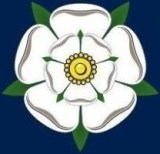"A" vs. "an" before chemical terms such as "N-N bond" Thread poster: Alan Frankel
|
|---|
Alan Frankel 
United States
Local time: 09:38
German to English
The basic rule in English regarding the use of the indefinite article is that "an" is used before a word that begins with a vowel SOUND, and "a" is used before all other words. Spelling is ignored: if a word starts with a vowel in its ORTHOGRAPHY but it is pronounced like a consonant, "a" is used ("a one-step solution"), while if a word's initial letter is a consonant but it is pronounced like a vowel, "an" is used (e.g., "an MRI", pronounced "an em ar eye"). So far, so good.
The q... See more The basic rule in English regarding the use of the indefinite article is that "an" is used before a word that begins with a vowel SOUND, and "a" is used before all other words. Spelling is ignored: if a word starts with a vowel in its ORTHOGRAPHY but it is pronounced like a consonant, "a" is used ("a one-step solution"), while if a word's initial letter is a consonant but it is pronounced like a vowel, "an" is used (e.g., "an MRI", pronounced "an em ar eye"). So far, so good.
The question is whether in a chemical textbook, I should write (1) "an N-N bond" (assuming that the writer would silently read it as "an en en bond") or (2) "a N-N bond" (assuming that it would be read silently as "a nitrogen-nitrogen bond").
I personally would go with (1), but I am curious to hear what other people familiar with chemistry (and English) have to say. ▲ Collapse
| | | |
Hi Alan,
I would say option (1) too.
Walter
[Edited at 2010-01-27 17:10 GMT]
| | | | | I would use AN | Jan 27, 2010 |
like in "an history"
(as an extreme example, where H almost disappears and the word stars with a breath)

[Редактировалось 2010-01-27 17:11 GMT]
| | | |
I, as a Chemist myself, say AN N-N bond. Anyway, we, the chemists, do not silently think of N-N bond as nitrogen-nitrogen bond. We speak in abbreviations all the time and do not silently "translate" them.
| | |
|
|
|
Neil Coffey 
United Kingdom
Local time: 14:38
French to English
+ ...
Sergei: the word "history" begins with a consonant (h) and the article that people naturally use is "a".
Occasionally, you find cases where people use "an" before a word beginning with a (pronounced) "h"-- sometimes because they've seen e.g. "an historic...", "an hotel" etc in earlier documents from a time when it was more common not to pronounce the "h". But this is really just a hypercorrection caused by people getting confused. The natural pronunciation nowadays is "a history".... See more Sergei: the word "history" begins with a consonant (h) and the article that people naturally use is "a".
Occasionally, you find cases where people use "an" before a word beginning with a (pronounced) "h"-- sometimes because they've seen e.g. "an historic...", "an hotel" etc in earlier documents from a time when it was more common not to pronounce the "h". But this is really just a hypercorrection caused by people getting confused. The natural pronunciation nowadays is "a history".
P.S. I agree with "an N-N bond". ▲ Collapse
| | | |
So I mentioned it as an _extreme_ example.
With "N" we hear clear "en", so... #1.
| | | | | You have a point... | Jan 27, 2010 |
Sergei Leshchinsky wrote: like in "an history" (as an extreme example, where H almost disappears and the word stars with a breath) 
I think many people nowadays would say ´a history´ unless they were trying to be very formal. But when I was at school, there were still people who firmly wrote and said ´an (h)otel´.
My mother would aspirate the ´h´ distinctly to show she was not a Cockney, but many others would simply lose it and pronounce the ´otel more or less as in French!
I would certainly go for an N-N bond.

| | | | Sumit Sarkar 
India
Local time: 19:08
Member
English to Bengali
+ ...
| For chemists it may not be such a big issue | Jan 27, 2010 |
Hi Alan,
I agree that I shall prefer an N-N, but it may not be very big an issue altogether. Such minute grammatical details are generally ignored by those professionals who need such science related translations to be done i.e., the chemists. They even ignore spelling mistakes if the word sounds almost the same e.g. sulfur sulfar etc.
| | |
|
|
|
| As a (former) editor of a chemistry journal... | Jan 27, 2010 |
... I'd say it's really not that important. If I was put on the spot, I'd say "an N-N bond", but I most likely wouldn't be too worried if the author had put "a N-N bond" as it would certainly be understood. I would never, however, ignore "sulfar"(even though it apparently sounds the same), nor would I allow "wolfram" instead of "tungsten" (that's a private joke so I hope my wife's boss isn't reading this; and if he is "YOU'RE a COMPLETE ********").
Andy
| | | | Alan Frankel 
United States
Local time: 09:38
German to English
TOPIC STARTER | Thanks, and I'm glad to hear a basic consensus. | Jan 28, 2010 |
Thanks, everyone, for your feedback. I'm glad to hear that most people agree with my inclination, which is to use "a" before "N-N bond".
I suspect that Andy is correct in saying that readers might well not care about whether "a" or "an" appears before "N-N bond", since an argument could be made for doing it either way (though I will continue to use "an" consistently in such instances). But I can tell you that if I encountered "sulfar" rather than "sulfur" on the label of a bottle, I... See more Thanks, everyone, for your feedback. I'm glad to hear that most people agree with my inclination, which is to use "a" before "N-N bond".
I suspect that Andy is correct in saying that readers might well not care about whether "a" or "an" appears before "N-N bond", since an argument could be made for doing it either way (though I will continue to use "an" consistently in such instances). But I can tell you that if I encountered "sulfar" rather than "sulfur" on the label of a bottle, I wouldn't want to open it! ▲ Collapse
| | | | Steven Capsuto 
United States
Local time: 09:38
Member (2004)
Spanish to English
+ ...
I'd definitely put "an."
As for "an history," every American or British style guide I have rejects that usage. It's "a history."
| | | | Grayson Morr (X) 
Netherlands
Local time: 15:38
Dutch to English
| Can't please everyone | Jan 28, 2010 |
(But you obviously already know that, since you're asking the question.)
Whatever you choose, you impose a pronunciation on the reader, an interpretation of how to read "N-N." If that matches the reader's own preference, they won't notice, but if it clashes, they will, and some will even complain to the publisher / author about this "mistake."
| | |
|
|
|
Alan Frankel 
United States
Local time: 09:38
German to English
TOPIC STARTER | "Eta" or "hapto"? | Jan 28, 2010 |
Okay, here's a related question: Do people generally say, e.g., "eta 2" or "hapto 2" when talking about a doubly coordinated residue? (I won't drop in the symbol, since I don't think it will be displayed correctly here, but it's the lowercase Greek letter eta, which looks like this: [img]http://www.fileformat.info/info/unicode/char/03b7/index.htm[/img] except that a "curlier" version is usually used in text.) Since both "eta" and "hapto" have two syllables, I imagine that they'd say "hapto", but... See more Okay, here's a related question: Do people generally say, e.g., "eta 2" or "hapto 2" when talking about a doubly coordinated residue? (I won't drop in the symbol, since I don't think it will be displayed correctly here, but it's the lowercase Greek letter eta, which looks like this: [img]http://www.fileformat.info/info/unicode/char/03b7/index.htm[/img] except that a "curlier" version is usually used in text.) Since both "eta" and "hapto" have two syllables, I imagine that they'd say "hapto", but I'd like to know for sure. Since one starts with a vowel and one does not, this affects whether I would precede it with "a" or "an". Thanks again.
Note that you may need to right-click on that image and choose "View Image" in order to see it. You can also try looking here:
http://en.wikipedia.org/wiki/Eta
[Edited at 2010-01-28 19:54 GMT]
[Edited at 2010-01-28 23:14 GMT] ▲ Collapse
| | | |
I would say "hapto" since it refers to the hapticity and the Greek letter eta is just the symbol for that.
| | | | To report site rules violations or get help, contact a site moderator: You can also contact site staff by submitting a support request » "A" vs. "an" before chemical terms such as "N-N bond" | Wordfast Pro | Translation Memory Software for Any Platform
Exclusive discount for ProZ.com users!
Save over 13% when purchasing Wordfast Pro through ProZ.com. Wordfast is the world's #1 provider of platform-independent Translation Memory software. Consistently ranked the most user-friendly and highest value
Buy now! » |
| | Trados Business Manager Lite | Create customer quotes and invoices from within Trados Studio
Trados Business Manager Lite helps to simplify and speed up some of the daily tasks, such as invoicing and reporting, associated with running your freelance translation business.
More info » |
|
| | | | X Sign in to your ProZ.com account... | | | | | |












